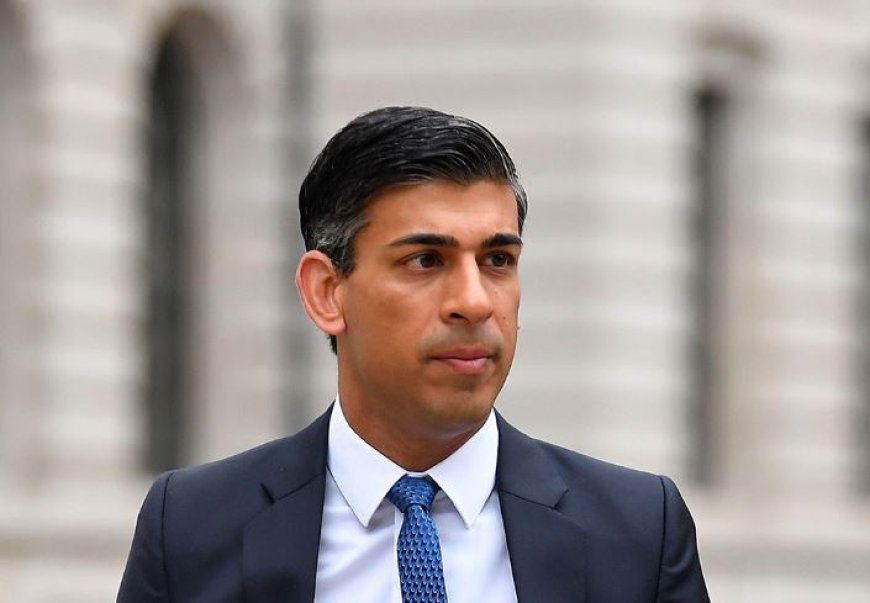Britons Need to ‘Hold Our Nerve’ Amid Soaring Interest Rates, Says Sunak
Britons Need to ‘Hold Our Nerve’ Amid Soaring Interest Rates, Says Sunak

Britons need to “hold our nerve” with interest rate hikes as “there is no alternative” to stamping out inflation, Prime Minister Rishi Sunak has said. Appearing on the BBC’s Sunday with Laura Kuenssberg programme, he defended the Bank of England’s (BoE’s) decision to raise interest rates from 4.5 to 5 percent, a 15-year high. It was the central bank’s 13th consecutive interest rate rise in 18 months, putting further pressure on mortgage holders. But Sunak said the BoE is “doing the right thing” and has his “total support.” He said “inflation is the enemy” and is “what makes people poorer.”
Asked if there is another way than raising interest rates, the prime minister said: “There is no alternative to stamping out inflation. I get that this is challenging, but we’ve got to stick to the course. “I want people to be reassured that we’ve got to hold our nerve, stick to the plan, and we will get through this.” ‘Watertight’ Resolve Following the latest rate hike, BoE Governor Andrew Bailey said the bank has “got to deal with” inflation, which is still much higher than the bank’s 2 percent target. “We know this is hard—many people with mortgages or loans will be understandably worried about what this means for them,” Bailey said on June 22. “But if we don’t raise rates now, it could be worse later. We are committed to returning inflation to the 2 percent target and will make the decisions necessary to achieve that.” Chancellor of the Exchequer Jeremy Hunt voiced support for the bank’s decision, saying, “High inflation is a destabilising force eating into pay cheques and slowing growth.” “Core inflation is higher in 14 EU countries and interest rates are rising around the world, but the lesson from other countries is that if you stick to your guns, you bring inflation down,” he said.
“Our resolve to do this is watertight because it is the only long-term way to relieve pressure on families with mortgages. If we don’t act now, it will be worse later.” ‘Flexibility’ on Mortgages As concerns mounted on the affordability of mortgages following the rate hike, the chancellor summoned major lenders to Downing Street to discuss ways to cool the mortgage crisis. Following the meeting on June 23 with bosses of HSBC, Santander, and Barclays, among others, Hunt said he had made some “important” agreements with banks and lenders. He said the lenders agreed to give more flexibility to those “anxious” about their finances by letting them switch to interest-only payments or extend the length of their mortgages before reverting to the original terms within six months, with “no questions asked, no impact on your credit score.” “That, I think, is going to give people a lot of comfort and stop people worrying about having conversations with their banks when they are worried about their financial situation,” he said. The lenders will also offer more leeway for those facing losing their homes.
“The last thing that they want to do is to repossess a home, but in that extreme situation they have agreed there will be a minimum 12-month period before there’s a repossession without consent,” Hunt said. Mortgage Intervention Ruled Out The opposition Labour Party has called for banks to be forced to give more help to struggling mortgage holders in a tougher response, while some backbench Tories have demanded support for under-pressure borrowers. But Sunak and Hunt have both ruled out a financial intervention, fearing it could further fuel inflation. Hunt stressed that tackling stubbornly high inflation is the “number one priority,” and ministers must be “totally resolved and unflinching” in cooling prices. Labour came up with a five-point plan, under which banks would have to wait for at least six months before starting repossession proceedings, and they’ll have to allow any changes to be reversible, unlike under the current situation where borrowers can be trapped in less-favourable terms. The financial regulator would also be told to issue guidance, telling banks that borrowers’ who ask for help won’t have their credit scores affected. But Tom Clougherty, research director of think tank the Centre for Policy Studies, told the BBC that Labour’s plan “mostly ‘requires’ lenders to do a variety of things they will already be doing voluntarily,” and that forcing them to do more will increase costs for borrowers and “cause as many problems as it solves.”













































